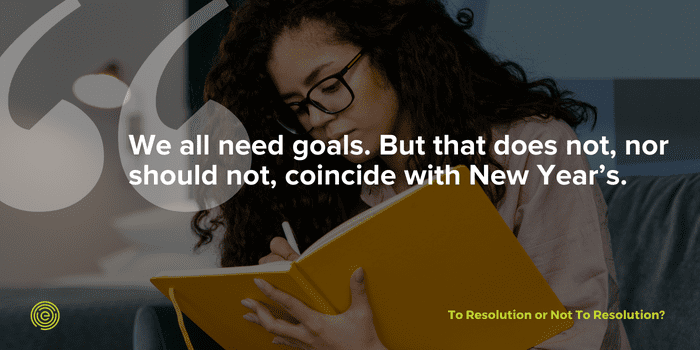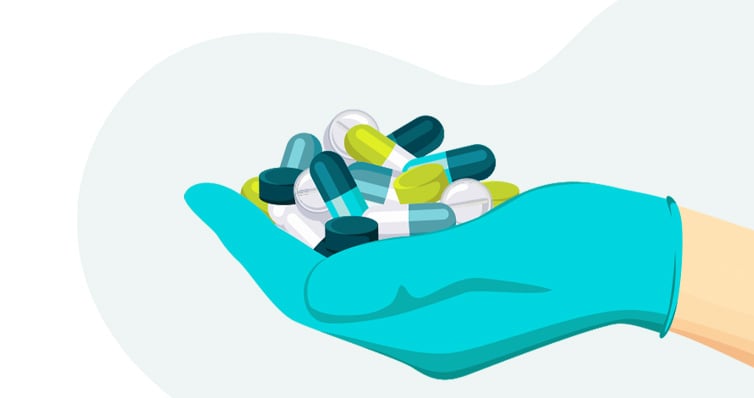By: Jeff Vircoe
A new year feels like a tempting time to seek help for addiction. But are you setting yourself up for failure?
“I’m going to exercise regularly.” “I am going to read more.” “I am going to eat better.” These are the oft-heard and quickly forgotten intentions every January 1.
When it comes to New Year’s resolutions, the numbers say most people won’t achieve their goals. But if you are struggling with addiction, is it that simple? For people prone to ruminating, to revisiting old patterns, in other words, to relapsing, New Year’s resolutions are something to consider carefully.
Ras Verplanken, a professor of social psychology at the University of Bath in the U.K., put it bluntly when talking to Sarah Knapson, science editor at The Telegraph newspaper for her story, “The science of how to stick to your New Year’s Resolutions in 2022.”
“Changing your habits is very difficult, including finding the right moment to make a change,” said Verplanken. “Many resolutions are made on December 31st and go down the drain on January 2nd.”

While that may be a little extreme, the sad truth is there are plenty of studies to back up the lack of success folks have with resolutions.
John C. Norcross, professor and chair of Psychology at the University of Scranton, has been exploring the science behind New Year’s resolutions for over 30 years. His research has found that, after six months, kept resolutions dropped to 46%. Those without a resolution but owning a “goal” are down to 8% success after six months.
Of course, you can dig into why failure is so common in New Year’s resolutions: not specific enough; not planned out properly; overly optimistic. But most people in recovery are not like everyone else. Often, they come from a place of dangerous, risky behaviours. Failing is not a good option when it comes to their recoveries and doing something that potentially could set them up for failure early on their path is in itself risky.
“As for New Year’s resolutions, No!” says Michal Hathaway, Executive Director at EHN Bellwood Novascotia and a man who has been working with people struggling with substance use issues for over 20 years.
Over his career spanning centres from Nova Scotia to Vancouver Island, Hathaway has seen the pros and cons of making promises and failed expectations.
“Having made such a bold statement, resolutions are a very sensitive and tricky subject because we have to factor in the client’s rationale, intent and resolve – which is very difficult. Then we need to ‘suss’ out the ramifications if the client does not meet or fulfill their resolution; how will it impact their self-worth, and motivation to continue in recovery?”
Regardless of if the clients are dealing with substance use, mood disorders, anxiety conditions, PTSD or any of the programs, making resolutions can lead to problems, Hathaway says.
“Over the years, I have found most often it is an unnecessary ‘set-up’ and if possible, should be avoided. I mean, we all need goals. But that does not, nor should not, coincide with New Year’s.”
In other words, setting a start time just because others are is not necessarily a good recovery.
People who survived long enough to ask for help can sometimes think their stubbornness or their dogged determination is enough to get them over hurdles and significant changes. Maybe it is. But what if it isn’t?
Some may think their willpower is enough to combat a host of potentially problematic behaviours when it comes to food, work, technology, and substances, but when they look around or even close at their own paths, they may see how there are plenty of people who were not properly equipped to deal with those issues, no matter how much willpower they tried to generate. They need help. But because they are trying to do it alone, they fail, and that can lead to harsh self-talk and punitive measures – including relapsing into old behaviours.

Trevor Sigmundson is a man in long-term recovery. He has been watching New Year’s days come and go from the lens of sobriety since 2004. He has also been an addictions counsellor at his alma mater at EHN Canada’s Edgewood Treatment Centre in Nanaimo, B.C., since 2015. He didn’t have to think long and hard about the dubious nature of resolution-making.
“Off the top of my head, it’s a setup for failure and might lead to some all-or-nothing thinking, which for us is very dangerous,” he says. “Also, it kind of goes against the principle of ‘one day at a time’ which has many a time, saved my bacon,” said Sigmundson.
In the recovery-oriented systems of care model, healthcare providers including therapists like counsellors and recovery coaches try to help clients build on their assets, strengths, and skillsets, to grow their satisfaction with life, and hopefully, diminish or eliminate their clients’ need to use unhealthy behaviours to cope with their journeys.
Sergio Orlando is a retired addictions counsellor who worked with EHN Canada for over 21 years. The 75-year-old shares his thoughts on the matter of the pros and cons of making resolutions.
“Clients and counsellors make a plan when they finish treatment, a recovery plan. It has things like meetings, sponsorship, home groups, and exercise. Important things. They might pick something to commit to like going for a walk every day or maybe going to a gym. But for New Year’s resolutions, that is a good question,” says Orlando.
“If they don’t make it, they feel guilty about it afterwards. And most of the time, resolutions don’t work. So, in recovery, if they feel guilty, then they go to shame. That can be difficult on them,” he says.
“But if they have a good foundation in recovery and good support, there is no problem dealing with that. But it depends on the resolution. If it is something difficult like quitting smoking, I like to suggest giving them time before they do that. Sometimes when we quit smoking, we might compulsively do something else,” says Orlando.
In other words, trading one behaviour for another.
If you have decided on a New Year’s resolution, many people suggest using a SMART plan: Specific, Measurable; Achievable; Relevant and Timely. Heading on casually into a change without doing the research is one of the big reasons most resolutions don’t stick.

Carl N. is from Caledon, Ontario. He sought treatment at Edgewood in 2011 and has his own take on resolutions. To him, there is a big difference between making the decision to get into recovery and making a resolution.
“Will power won’t work. When I quit smoking, I didn’t use willpower. When I quit drinking, I didn’t use willpower. When I quit drugs, it wasn’t willpower. It was a knowing. It was very clear … like, it is choice time. You are choosing to live, or you are choosing to die. What do you want to do?
“But it was a process. It is always about the process. I wasn’t done until I was really, really done. I had to feel a certain amount of pain before I was willing to change.”
So, when it comes to resolutions, he is not a big fan of setting a date just because others are.
“It is really difficult to stop things abruptly like that,” he says. “I feel it is important to set goals. And I feel like if I am setting it in my mind, that I want to make this change, I feel like it is a part of my ego saying I am going to do this now. There is that intention of I know that this is best for me, of I want to make this change, but usually it is a gradual thing.”
“When I think about New Year’s resolutions for myself, I really want to let go of my wanting.”
He laughs.
“You hear that? I want to let go of my wanting. It is a total mind bend.”
The mind bend of New Year’s resolutions.




